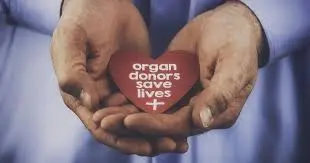Why in news?
- On 29 May 2024, Member States (with the initiation of Spain) approved a new resolution on increasing availability, ethical access and oversight of transplantation of human cells, tissues and organs.
About the draft resolution:
- The draft urged member states to increase in line with the World Health Organization (WHO) Guiding Principles on Human Cell, Tissue and Organ Transplantation.
- It emphasized on encouraging donation after the neurological determination of death and where appropriate, donation after the circulatory determination of death.
- It also mentioned that insufficient access to transplantation therapies is one of the root causes of trafficking in persons for organ removal and trafficking in human organs, practices that undermine human rights and pose serious risks to public health.
- The resolution urged the director-general to establish an expert committee under the Regulations for Expert Advisory Panels and Committees, to help the Secretariat in developing the proposed global strategy and its implementation.
- The resolution tasked countries with developing a global strategy to be presented for adoption in 2026. It also encouraged the establishment of a World Donor Day to raise public awareness and donations.
About World Health Assembly:
- It is the decision-making body of the World Health Organization.
- It is attended by delegations from all WHO Member States and focuses on a specific health agenda prepared by the Executive Board.
- Functions:
- The main functions of the World Health Assembly are to determine the policies of the Organization, appoint the Director-General, supervise financial policies and review and approve the proposed programme budget.
- The Health Assembly is held annually in Geneva, Switzerland.
Q1: What is the World Health Organization (WHO)?
The WHO, established in 1948, is a specialized agency of the United Nations that connects nations, partners and people to promote health, keep the world safe and serve the vulnerable – so everyone, everywhere can attain the highest level of health.
Source: World Health Assembly: Countries approve draft to improve organ transplantation availability
Last updated on December, 2025
→ Check out the latest UPSC Syllabus 2026 here.
→ Join Vajiram & Ravi’s Interview Guidance Programme for expert help to crack your final UPSC stage.
→ UPSC Mains Result 2025 is now out.
→ UPSC Notification 2026 is scheduled to be released on January 14, 2026.
→ UPSC Calendar 2026 is released on 15th May, 2025.
→ The UPSC Vacancy 2025 were released 1129, out of which 979 were for UPSC CSE and remaining 150 are for UPSC IFoS.
→ UPSC Prelims 2026 will be conducted on 24th May, 2026 & UPSC Mains 2026 will be conducted on 21st August 2026.
→ The UPSC Selection Process is of 3 stages-Prelims, Mains and Interview.
→ UPSC Result 2024 is released with latest UPSC Marksheet 2024. Check Now!
→ UPSC Prelims Result 2025 is out now for the CSE held on 25 May 2025.
→ UPSC Toppers List 2024 is released now. Shakti Dubey is UPSC AIR 1 2024 Topper.
→ UPSC Prelims Question Paper 2025 and Unofficial Prelims Answer Key 2025 are available now.
→ UPSC Mains Question Paper 2025 is out for Essay, GS 1, 2, 3 & GS 4.
→ UPSC Mains Indian Language Question Paper 2025 is now out.
→ UPSC Mains Optional Question Paper 2025 is now out.
→ Also check Best IAS Coaching in Delhi

















